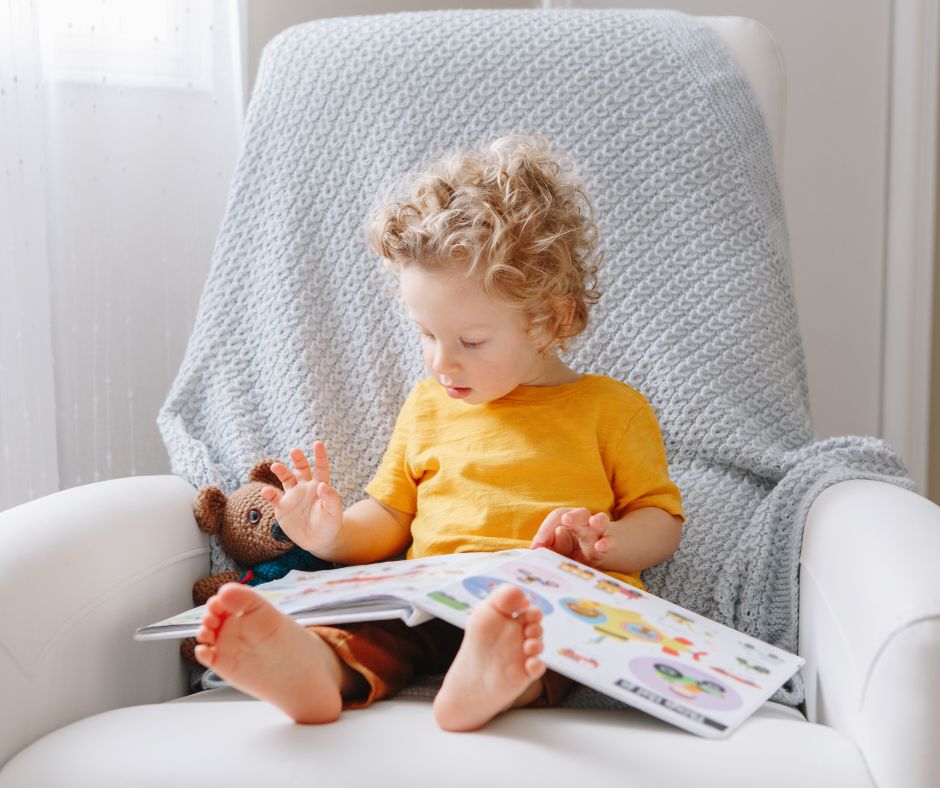The toddler stage can be both fun and challenging for most parents. During this stage of development, toddlers are starting to realize that they are separate individuals from their parents. This is the phase in which they start to exercise independence by asserting themselves, expressing their likes and dislikes, and communicating their thoughts. These are also the reasons why navigating challenging behaviors can be difficult for parents. And this is where the importance of establishing toddler rules comes in.
Setting clear expectations and rules for your toddler is crucial for promoting and encouraging appropriate behavior with toddlers. Doing this goes beyond teaching what is right and wrong. When you establish clear expectations, it helps to set boundaries, which will make child-rearing easier and ensure your child’s safety and welfare. Putting rules in place also helps parents raise kids who have more self-control and are self-disciplined, more cooperative, and more responsible, which will help them flourish and succeed later in life. Learn how you can instill discipline in your toddler by creating rules in your home.

Keep a realistic mindset
Managing your toddler’s behavior can be one of the most challenging phases of parenting. Very few parents are able to handle a sudden meltdown at a restaurant or toy store gracefully. When it comes to establishing rules for your toddler, it’s important to be realistic. Embrace the reality that toddlers can be unpredictable and challenging, and that’s okay. Kids between the ages of two and four years old are just beginning to learn how to identify and understand their individuality while trying to be understood. Try to appreciate each step of progress they make, no matter how big or small it may seem.
Keep it simple
Toddlers may find it difficult to follow too many rules, especially if they’re complicated. Be sure to keep it simple and short when creating rules for your toddler. For example, instead of saying, “Don’t yell or shout when asking for food,” you can “No shouting.” Also, be sure not to overwhelm them with too many rules. They might have a hard time remembering them.
Be consistent with your rules
Consistency is key when it comes to teaching young children how to behave appropriately. It won’t help if you impose a rule that can be broken later on. Additionally, it’s also important that all adults in the house implement the same rules for your toddler. If playing outside after dark isn’t allowed by mom, it shouldn’t be allowed by dad either.
One of the reasons why young kids may have trouble adhering to limits and boundaries is lack of consistency. Be sure to stay consistent in order to avoid any confusion and prevent kids from undermining your authority.
Keep communication open
Toddlers need to understand the reasons behind why certain rules are established. This is why it’s important to maintain open communication. Take time to communicate the rules to your toddler clearly, and make sure he or she comprehends why these rules are important. Encourage your child to ask questions if something seems unclear. Remember that young children are naturally curious. They tend to seek clarity and logic in order to better understand the world around them. Don’t avoid their questions, but instead, take the time to discuss the rules with them to ensure their understanding.
Use positive reinforcement
Positive reinforcement is known to be effective when it comes to encouraging positive behavior with kids. Instead of immediately resorting to punishment for misbehavior, try to find things that will help motivate your child to behave more appropriately in the future. Is your child willing to give up anything for a chance to ride his or her bike around the park? If so, you can use this as a reward the next time he or she behaves well during grocery shopping. Just be sure that you’re only using a rewards system to recognize positive behavior, and not as a tool to calm your child if she or she has a tantrum.
Provide appropriate consequences
It’s important for young children to learn and understand that negative actions will have corresponding consequences. The concept of consequences plays an important role in setting a baseline for positive and appropriate behavior. When children experience realistic consequences for their actions, it helps them learn what is expected of them in the future. Also, be sure to explain to your child why their actions have led to such consequences. This will help them understand that rules and consequences are put in place for their own good and welfare.
Creating consistent rules and expectations for your toddler is crucial when it comes to instilling positive discipline and teaching young kids how to behave appropriately. You can raise cooperative and self-disciplined toddlers with these tips!
For more parenting tips and resources, please visit Children Central.




